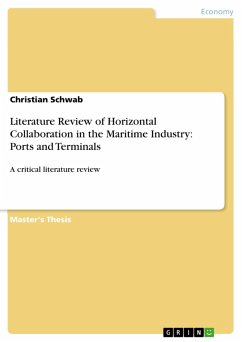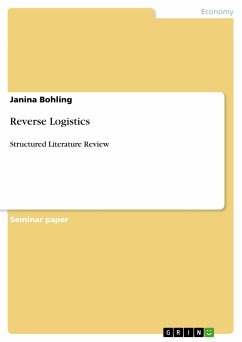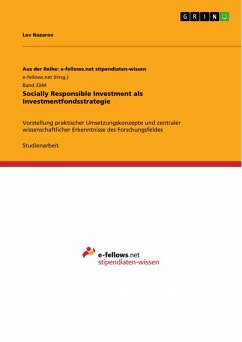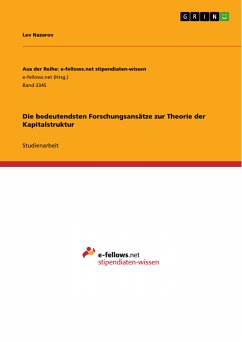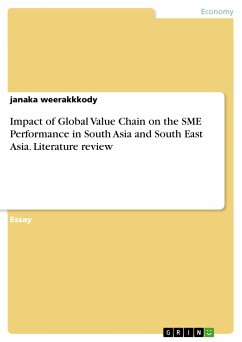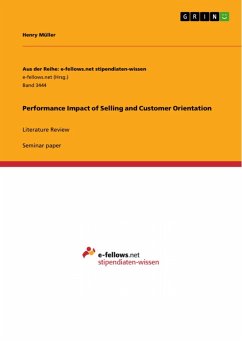Essay from the year 2012 in the subject Business economics - General, grade: 2, Heriot-Watt University Edinburgh (School of Language and Management), language: English, abstract: The business world offers numerous examples of companies sourcing their activities out. This literature review will put emphasis on companies that engage with a third-party that provide logistics services to them. Third-party logistics (TPL), which can be perceived as outsourcing logistics, has been receiving considerable amount of attention within the academic world (e.g. Lieb and Bentz, 2004, 2005; Lieb and Randall, 1999; Cooper and Johnstone, 1990; Fernie, 1989; Marasco, 2007). This trend has been dominating both the business world and the academic world since the 1980s (Stalk, Evans and Shulman, 1992; McKinnon, 1999) and yet, this topic doesn't seems to be exhausted. While Porter (1985) illustrate the Value Chain, he argues that organisations need to assess their activities in their value chain and evaluate whether they create a competitive advantage by executing this activity in-house. If they do not achieve so, he continues by suggesting outsourcing that activity. Hsiao et al. (2009) distinguish between core business outsourcing and non-core business outsourcing. A firm's core business or core competencies can be designated as "the collective learning in the organization, especially how to coordinate diverse production skill and integrate multiple streams of technologies" (Prahalad and Hamel, 1990). Core business outsourcing can be understand as activities such as product design, development, manufacturing, marketing, and sales (Facanha and Horvath, 2005), and research has proven that this business conduct may have positive effects in order to be responsiveness to inconsistencies in demand (Dabhilkar and Bengtsson, 2008; Jiang et al, 2007). The non-core business in manufacturing industry incorporates activities such as IT, HRM, accounting and logistic services (Hsiao et al, 2009). However, this literature review will not focus on outsourcing core business but will concentrate on outsourcing non-core business; in particular outsourcing of logistics activities to TPL. Initially, this paper will draw attention to essential definitions that have been published over the years. This will be followed by an examination to discover the driving forces for this field. The main body will be closing with the highlighting the risk that are associate with outsourcing.
Dieser Download kann aus rechtlichen Gründen nur mit Rechnungsadresse in A, B, BG, CY, CZ, D, DK, EW, E, FIN, F, GR, HR, H, IRL, I, LT, L, LR, M, NL, PL, P, R, S, SLO, SK ausgeliefert werden.




